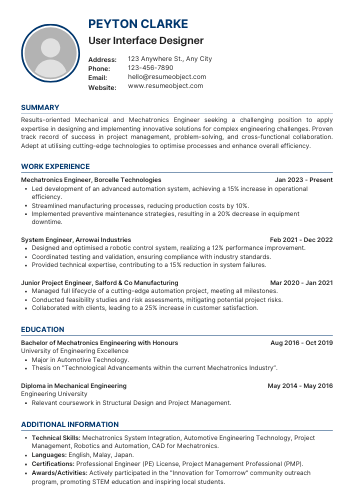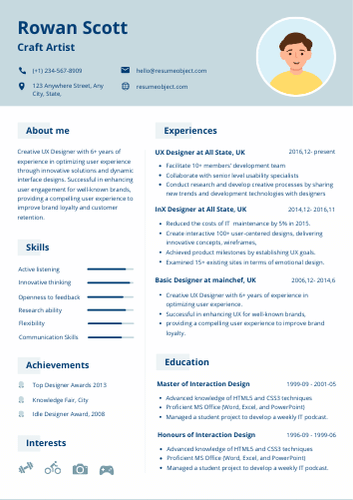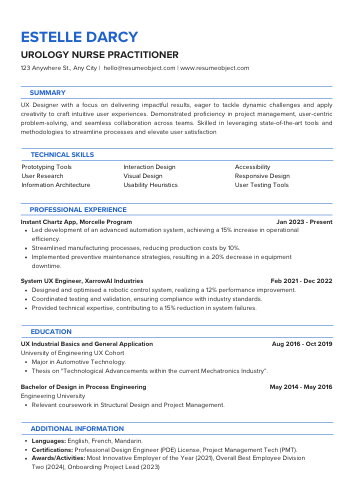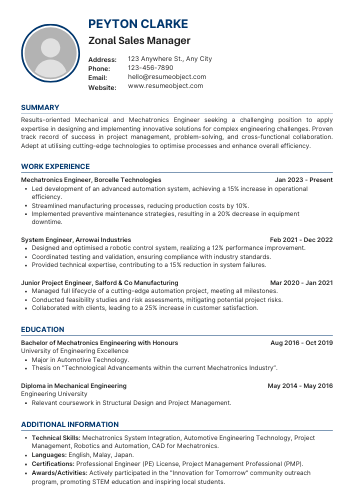28 Law Enforcement Skills for Resume – How to List for Law Enforcement Resume
Law Enforcement Skills on Resume
Showcase your Law Enforcement Skills for Resume with a concise, strategic list that highlights patrol tactics, investigations, incident reporting, crime scene processing, weapons proficiency, community policing, de-escalation, and leadership. Tailor skills to each job, quantify achievements, and use action verbs to stand out. This targeted approach proves capability, boosts ATS compatibility, and persuades hiring managers to invite you for interviews.
Why Law Enforcement Skills Matter for a Resume
Highlighting law enforcement skills on your resume demonstrates operational competence, decision-making under pressure, legal knowledge, investigative ability, community engagement, and integrity—showing employers you possess the practical, ethical, and interpersonal capabilities required to perform duties effectively and advance public safety daily
Law Enforcement Skills for Resume are essential because they demonstrate practical ability, judgment, and reliability on the job. Recruiters look for clear evidence of tactical proficiency, legal knowledge, and community engagement that reduce risk and improve public safety. Highlighting skills such as incident command, evidence handling, conflict resolution, and ethical decision-making shows readiness to perform under pressure and aligns your experience with agency priorities.
- Tactical skills: firearms proficiency, defensive tactics, and emergency vehicle operation to protect and serve safely.
- Investigative abilities: evidence collection, report writing, witness interviewing that solve cases and sustain prosecutions.
- Communication: de-escalation, community outreach, and clear radio/briefing skills to build trust and coordinate teams.
- Legal and ethical knowledge: Miranda, search and seizure, use-of-force policy, and professional integrity for lawful actions.
- Problem-solving and decision-making: quick risk assessment, resource prioritization, and leadership during high-stress incidents.
- Technical and digital skills: body-worn camera management, records systems, and forensics to support policing.
Boost your application by highlighting practical abilities—check essential examples and tips in Office Assistant Skills for Resume now to impress hiring managers and secure interviews
Top 20 Skills for a Law Enforcement Resume
Law Enforcement Skills for Resume are essential for showcasing your qualifications and competencies in the field. Here’s a list of the top 20 skills to consider:
- Communication Skills
- Problem Solving
- Critical Thinking
- Conflict Resolution
- Attention to Detail
- Physical Fitness
- Teamwork
- Ethical Judgment
- Decision Making
- Report Writing
- Interpersonal Skills
- Investigation Techniques
- Time Management
- Stress Management
- Leadership
- Community Engagement
- Firearms Proficiency
- First Aid/CPR Certification
- Surveillance Techniques
- Cultural Awareness
Top Hard Skills for a Law Enforcement Resume
The following are the top hard skills essential for law enforcement resumes, showcasing technical abilities, certifications, and specialized training that employers prioritize to evaluate readiness, professionalism, and operational competence and effectiveness in modern policing roles.
-
Communication Skills: Ability to convey information clearly and effectively, both verbally and in writing, essential for reports and interactions with the public.
-
Problem-Solving Abilities: Strong analytical skills to assess situations, identify issues, and develop effective solutions quickly.
-
Physical Fitness: Maintaining a high level of physical health to meet the demands of law enforcement duties and handle stressful situations.
-
Conflict Resolution: Skills in de-escalating tense situations and resolving disputes peacefully, crucial for community interactions.
-
Attention to Detail: Ability to notice and document critical details during investigations or while patrolling, ensuring accuracy and thoroughness.
-
Crisis Management: Skills in managing emergencies or high-pressure situations effectively, ensuring safety and order.
-
Technical Proficiency: Familiarity with law enforcement technology, including databases, surveillance equipment, and communication tools.
-
Legal Knowledge: Understanding of laws, regulations, and legal procedures to enforce the law correctly and uphold justice.
-
Teamwork: Ability to work collaboratively with other officers and agencies, fostering a cooperative environment for effective law enforcement.
-
Decision-Making: Strong judgment skills to make quick, informed decisions in critical situations while considering the consequences.
-
Investigative Skills: Proficient in gathering evidence, conducting interviews, and analyzing information to solve cases.
-
Cultural Competence: Awareness and understanding of diverse communities to engage respectfully and effectively with various populations.
-
Report Writing: Skilled in drafting clear, concise, and accurate reports that document incidents and investigations for legal purposes.
-
First Aid/CPR Certification: Trained to provide immediate medical assistance in emergencies, ensuring officer and public safety.
-
Surveillance Techniques: Knowledge of observation methods and tools to monitor activities and gather intelligence for investigations.
Other Skills for Resumes
Top Soft Skills for a Law Enforcement Resume
Discover the essential soft skills hiring managers seek when reviewing law enforcement resumes, highlighting traits that demonstrate leadership, communication, decision-making, integrity, and adaptability, qualities that elevate candidates and increase interview callbacks and career progression opportunities.
-
Communication Skills: The ability to convey information clearly and effectively, both verbally and in writing, is essential for interacting with the public and colleagues.
-
Problem-Solving Skills: Officers must analyze situations quickly and develop effective solutions to complex problems, ensuring public safety and compliance with the law.
-
Teamwork: Collaborating with fellow officers and other agencies is crucial for successful law enforcement operations and community engagement.
-
Empathy: Understanding and relating to the emotions and experiences of others helps officers build trust and rapport within the community.
-
Adaptability: The capacity to adjust to changing situations and environments is vital in law enforcement, where unexpected challenges often arise.
-
Conflict Resolution: The ability to de-escalate tense situations and mediate disputes is key to maintaining peace and order in the community.
-
Attention to Detail: A keen eye for detail ensures that officers accurately assess situations, gather evidence, and follow protocols correctly.
-
Critical Thinking: Officers must evaluate information and make informed decisions quickly, often under pressure, to ensure public safety.
-
Leadership: Strong leadership skills are necessary for guiding teams, making strategic decisions, and inspiring confidence in the community.
-
Cultural Competence: Understanding and respecting diverse cultures and backgrounds enhances community relations and improves policing effectiveness.
How to List Law Enforcement Skills on a Resume
Clear guidance shows hiring managers what matters most, explaining how to list skills effectively and highlighting Law Enforcement Skills for Resume with examples, action verbs, and measurable achievements to make your application stand out immediately.
When crafting your resume, highlighting your Law Enforcement Skills for Resume is crucial to stand out to potential employers. Begin by creating a dedicated skills section where you can list relevant abilities that align with the job description. Use bullet points for clarity and impact.
Consider including the following Law Enforcement Skills for Resume:
- Strong observational skills
- Effective communication and interpersonal abilities
- Conflict resolution and negotiation techniques
- Proficiency in report writing and documentation
- Knowledge of legal procedures and regulations
- Physical fitness and defensive tactics
- Crisis management and emergency response
- Team collaboration and leadership skills
Tailor your skills to match the specific requirements of the position you are applying for, showcasing your qualifications and readiness to excel in a law enforcement role.
Resume Example for Law Enforcement with Skills Highlighted
Discover a detailed example showcasing essential skills tailored for law enforcement professionals. This sample resume effectively highlights key qualifications and experience, providing a valuable reference for crafting your own standout law enforcement application.
John Doe
123 Main Street
City, State, ZIP Code
(123) 456-7890
[email protected]
Objective
Dedicated and skilled law enforcement professional with over 5 years of experience in community policing, criminal investigation, and emergency response. Seeking to leverage expertise in law enforcement skills for a challenging position within a progressive police department.
Education
Bachelor of Science in Criminal Justice
University of State, City, State
Graduated: May 2018
Certifications
Certified Law Enforcement Officer
State Police Academy, Year
CPR and First Aid Certified
American Red Cross, Year
Experience
Police Officer
City Police Department, City, State
June 2018 – Present
- Conducted thorough investigations of criminal activities, showcasing strong analytical skills and attention to detail.
- Engaged with community members to build trust and enhance public safety, demonstrating exceptional communication skills.
- Responded to emergency calls efficiently, utilizing crisis management and problem-solving skills to de-escalate situations.
- Collaborated with local agencies to develop crime prevention strategies, highlighting teamwork and leadership abilities.
Security Officer
XYZ Security Services, City, State
January 2016 – May 2018
- Monitored premises and conducted regular patrols to ensure safety and security, applying vigilance and situational awareness.
- Prepared detailed reports on incidents and investigations, showcasing strong written communication skills.
- Assisted in training new security personnel, demonstrating mentorship and instructional skills.
Skills
- Law Enforcement Skills for Resume: Criminal investigation, community policing, emergency response, conflict resolution
- Technical Skills: Proficient in law enforcement software and databases, firearms training, defensive tactics
- Interpersonal Skills: Strong communication, active listening, empathy, and relationship building
References
Available upon request.
Action Verbs to Pair with Law Enforcement Skills
Discover how to effectively highlight your expertise by choosing powerful action verbs to pair with skills in law enforcement. This guide helps you make your resume stand out by showcasing your abilities with the right dynamic language.
- Enforced
- Investigated
- Analyzed
- Coordinated
- Responded
- Patrolled
- Assisted
- Documented
- Collaborated
- Communicated
- Detected
- Resolved
- Monitored
- Trained
- Implemented
Common Mistakes to Avoid When Listing Law Enforcement Skills
Quick guide: avoid common pitfalls when describing expertise on your resume; learn mistakes to avoid while adding skills and how to present Law Enforcement Skills for Resume effectively to impress hiring managers and secure interviews.
When crafting a Law Enforcement resume, highlighting your Law Enforcement skills for resume is crucial. However, many candidates make common mistakes that can detract from their qualifications. Avoiding these pitfalls will ensure your resume stands out positively to hiring managers and showcases your abilities effectively.
Here are five must-avoid mistakes while adding Law Enforcement skills for resume:
- Neglecting Relevant Skills: Failing to include specific skills like crisis management or community policing can make your resume less impactful.
- Using Generic Language: Avoid vague terms; instead, use precise language that reflects your unique experiences and contributions.
- Overloading with Jargon: While industry terms are important, excessive jargon can confuse readers and dilute your message.
- Ignoring Soft Skills: Skills like communication and teamwork are vital in law enforcement; neglecting them can create an incomplete picture of your capabilities.
- Not Tailoring to the Job Description: Failing to customize your skills to match the specific requirements of the job can result in missed opportunities.
By steering clear of these mistakes, you can effectively present your Law Enforcement skills for resume and increase your chances of landing an interview.
Tips for Listing Law Enforcement Skills on Resume
When crafting a resume for a position in law enforcement, highlighting your Law Enforcement Skills for Resume is crucial. These skills not only demonstrate your qualifications but also show your commitment to the field. To stand out among candidates, consider the following tips for effectively showcasing your abilities.
- Be Specific: Use precise terminology related to law enforcement, such as "criminal investigation" or "community policing."
- Quantify Achievements: Whenever possible, include numbers to illustrate your impact, like "reduced crime rates by 20% through community engagement."
- Highlight Certifications: List any relevant certifications, such as CPR, First Aid, or specialized training in firearms.
- Include Soft Skills: Emphasize interpersonal skills like communication, conflict resolution, and teamwork, which are vital in law enforcement.
- Tailor Your Resume: Customize your resume for each position by aligning your skills with the job description.
By implementing these strategies, you can effectively showcase your Law Enforcement Skills for Resume and improve your chances of landing an interview.
Do
Do: Quantify Achievements - Include specific metrics (arrests, cases closed, response times, training hours) to demonstrate impact and operational effectiveness.
Do: Highlight Core Tactical Skills - List relevant proficiencies (firearms, defensive tactics, emergency vehicle operation, incident command) tied to certifications and dates.
Do: Showcase Investigative Abilities - Detail evidence handling, report writing, interview techniques, and case management software used to prove investigative rigor.
Do: Emphasize Community & Interpersonal Skills - Cite examples of community policing, conflict resolution, de-escalation, and collaboration with stakeholders to show trust-building and communication.
Do: Include Specialized Training & Certifications - Note academy graduation, advanced courses (SWAT, K9, forensics), certifications (CPR, NCIC), and continuous professional development with issuing organizations and dates.
Don't
Don't: Overload your resume with irrelevant skills. Focus on law-enforcement-specific abilities like incident reporting, evidence handling, crisis intervention, and community policing instead of generic or unrelated skills that dilute your qualifications.
Don't: Use vague or unsupported claims. Replace phrases like "excellent communicator" with concrete examples—e.g., "Led de-escalation training for 30 officers" or "Authored 120 incident reports with 99% accuracy."
Don't: Neglect measurable outcomes. Highlight quantifiable achievements such as reduced response times, clearance rates, arrests, citations issued, or successful community engagement initiatives to prove impact.
Don't: Skip keywords and ATS optimization. Mirror job-post language—terms like "criminal investigations," "search and seizure," "report writing," "firearms proficiency," and "DOT regulations"—to pass applicant tracking systems and catch recruiter attention.
Don't: Forget to tailor your skillset for the role. Remove generic law-enforcement lists and emphasize skills the position demands—patrol operations for field roles, investigative techniques for detective positions, or leadership and policy development for supervisory openings.
FAQs about Law Enforcement Resume Skills
How many skills should I include on a Law Enforcement resume?
Include 5-7 relevant Law Enforcement Skills for Resume to showcase your expertise effectively. Focus on key abilities like communication, investigation, and conflict resolution to highlight your qualifications without overwhelming the reader.
How do I know which skills are most relevant for a Law Enforcement job role?
Identify the most relevant Law Enforcement Skills for Resume by reviewing job descriptions, highlighting key abilities like communication, problem-solving, and physical fitness, and tailoring your resume to match the specific requirements of the law enforcement role you’re applying for.
How can I prove the Law Enforcement skills I list on my resume?
To prove Law Enforcement Skills for Resume, provide certifications, training records, performance evaluations, and documented achievements. Include specific examples of duties performed, awards received, and endorsements from supervisors to validate your expertise effectively.
Should I update my Law Enforcement skills section for each job application?
Yes, updating your Law Enforcement Skills for Resume with relevant, job-specific skills for each application increases your chances of standing out and matching the employer’s requirements, showcasing your qualifications effectively.
How to list Law Enforcement skills on a resume?
Highlight relevant Law Enforcement Skills for Resume by showcasing abilities like investigation, communication, conflict resolution, and emergency response. Use clear, action-oriented language and quantify achievements to demonstrate effectiveness and professionalism.

Law Enforcement Skills for Resume
Discover 28 Law Enforcement Skills for Resume and learn how to list them effectively to land interviews - actionable examples, keyword-ready phrasing, and resume tips.
Top Hard Skills
Firearms proficiency and safety
Defensive tactics and arrest techniques
Crime scene investigation techniques
Report writing and documentation
Evidence collection and preservation
Top Soft Skills
Clear and concise verbal communication
Quick, decisive problem-solving under pressure
Conflict resolution and de-escalation skills
Strong ethical judgment and integrity
Community engagement and cultural empathy
Mistakes to Avoid When Listing Skills
Exaggerating or fabricating skill proficiency
Including vague non-measurable skill descriptions
Listing outdated or irrelevant certifications
Tips to List Skills
List certifications and training first
Use measurable achievements and metrics
Include community policing and de-escalation
Free Resume Templates









